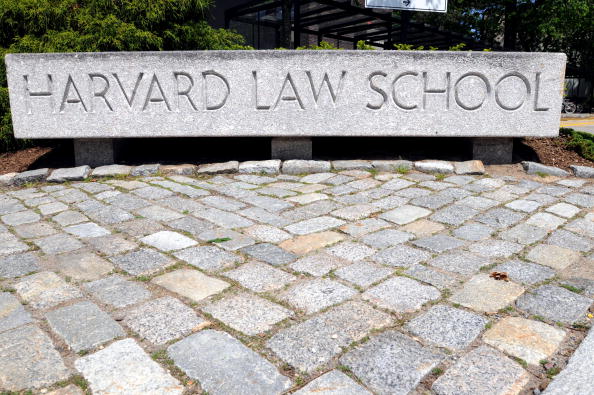
Harvard Law school wants the College to consider scrapping its official shield, which faced has faced fierce scrutiny for its connection to a known slave-owner.
The school’s dean Martha Minow wrote a letter to alumni on Friday indicating she endorses a committee’s recommendation to retire the shield, which serves as a sort of logo for the school, because “its association with slavery does not represent the values and aspirations of the Harvard Law School and because it has become a source of division rather than commonality in our community.”
The Harvard Corporation, the board made up of Harvard College’s president and fellows, will ultimately decide whether or not the school scraps the shield, but Minow says the Law School will remain committed to “addressing our history, and ongoing questions of injustice within our community and beyond” no matter what they decide.
Last October, students began calling on the school to distance itself from the shield, which was based off of a bookplate used by Isaac Royall, Sr., whose son was among the schools earliest donors. The Royall family amassed its wealth through the work of slaves on a sugar plantation in Antigua and a farm in Massachusetts. A group calling itself “Royall Must Fall” led the effort to distance the school from the shield.
“These symbols set the tone for the rest of the school and the fact that we hold up the Harvard crest as something to be proud of when it represents something so ugly is a profound disappointment and should be a source of shame for the whole school,” Alexander J. Clayborne, a student involved in the effort, told the Harvard Crimson last year.
In late Nov., an official committee was formed to review the status of the shield. The dean shared the committee’s recommendations, which include retiring the shield, on Friday.
Harvard is one of many schools where students have protested historical landmarks, buildings, and traditions they feel have links to racial injustice. Harvard recently stopped using the term “master” in academic titles, also because of its relation to slavery. At Princeton, students have urged the school to “publicly acknowledge the racist legacy of Woodrow Wilson,” who served as U.S. President and President of the school.
More Must-Reads from TIME
- Donald Trump Is TIME's 2024 Person of the Year
- Why We Chose Trump as Person of the Year
- Is Intermittent Fasting Good or Bad for You?
- The 100 Must-Read Books of 2024
- The 20 Best Christmas TV Episodes
- Column: If Optimism Feels Ridiculous Now, Try Hope
- The Future of Climate Action Is Trade Policy
- Merle Bombardieri Is Helping People Make the Baby Decision
Contact us at letters@time.com